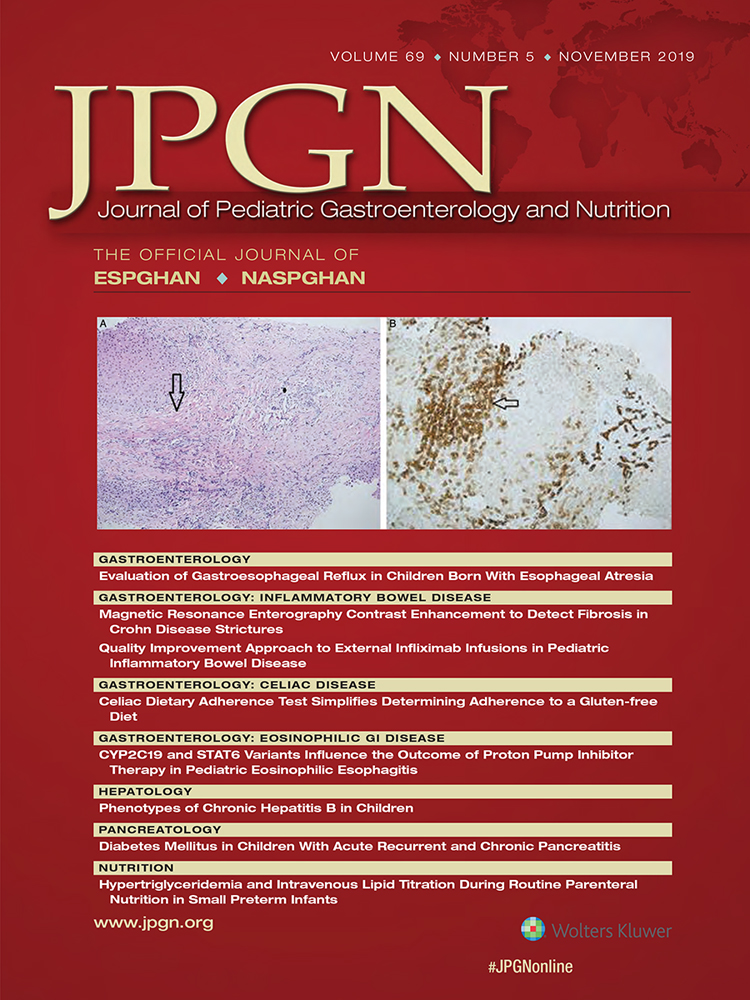Management of Anti-drug Antibodies to Biologic Medications in Children With Inflammatory Bowel Disease
The authors report no conflicts of interest.
ABSTRACT
Background:
Treatment of pediatric inflammatory bowel disease (IBD) with monoclonal anti- tumor necrosis factor-alpha (TNFα) can result in immunogenicity and formation of anti-drug antibodies (ADAs). ADAs are associated with loss of clinical response and worsening disease progression. Data examining treatment interventions to overcome ADA in pediatric patients with IBD are lacking.
Results:
Medical records were reviewed from 234 children and adolescents with IBD treated with infliximab or adalimumab who underwent therapeutic drug monitoring (626 tests). All patients who had detectable antibodies were further analyzed. A total 58 patients (24.8%) developed ADA while being treated with infliximab or adalimumab. The incidence of antibody development was 12.9 per 100 person-years of anti-TNF treatment. Twenty-eight patients underwent dose optimization and 54% had undetectable ADA on follow-up monitoring. The mean duration of antibody suppression was 16.8 ± 10.9 months in those who were successfully suppressed with optimization. Patients who switched to a second anti-TNF medication were not more likely to develop antibodies to the second agent.
Conclusions:
With limited therapies for IBD and the chronicity of the disease, we advocate salvage of the current anti-TNF through dose optimization in pediatric patients with antibody level <10 U/mL.




